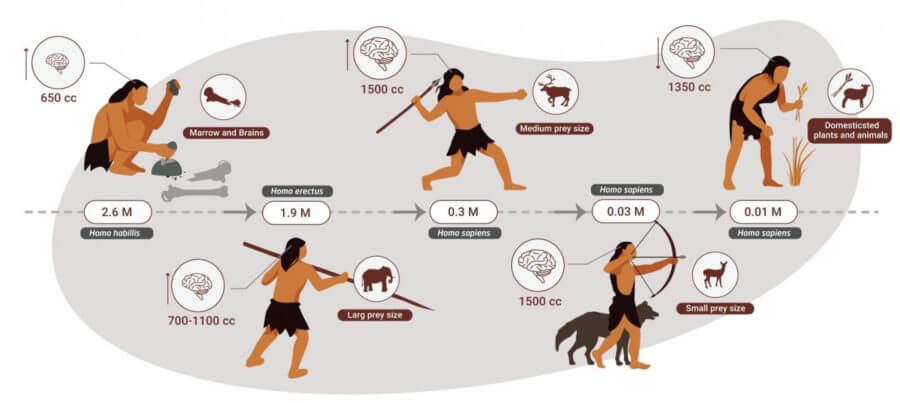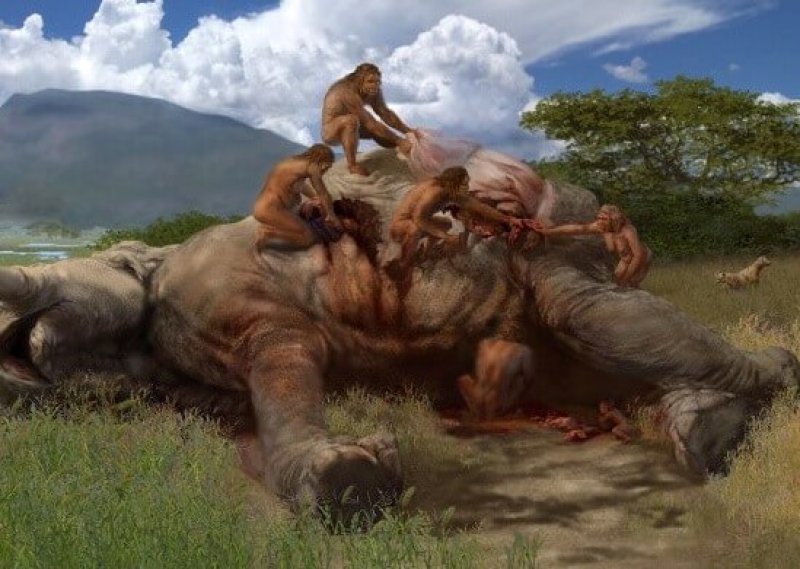In a study recently published in the American Journal of Physical Anthropology, academics from Tel Aviv University in Israel and the University of Minho in Portugal examined modern biology to determine if stone-age humans were specialized carnivores or generalist omnivores.
…
They discovered 25 lines of evidence from the studied papers on human biology that seem to show that earlier Homo sapiens were apex predators at the top of the food chain.
For example, the academics explained that humans have a high acidity in their stomachs when compared to omnivores or even other predators, which is important for consuming animal products.
“Strong acidity provides protection from harmful bacteria found in meat,” [researcher Miki Ben-Dor said.]
…
“Comparing humans to large social predators of today, all of whom hunt large animals and obtain more than 70% of their energy from animal sources, reinforced the conclusion that humans specialized in hunting large animals and were in fact hypercarnivores,” the academics noted.
Ben-Dor said they also consumed plants, but they weren’t a major component of their diet until the end of the era when the decline of animal food sources led humans to increase their vegetable intake.
































